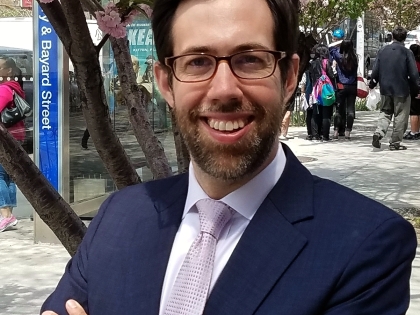
Our Town Downtown: The Prevalence - and Frustrations - of Ponding
While water collecting on the streets and curbs of an urban thoroughfare after a rainfall might seem like a minor issue to most, this type of water accumulation, or “ponding,” has reached a serious level in Chinatown. A report compiled by State Sen. Daniel Squadron’s office released last week identified 93 unique ponds that weren’t fully drained within 48 hours of a rainfall in the neighborhood. One-block stretches of five streets in particular—Bayard, Mulberry, Mott, Baxter and Elizabeth Streets, all in the heart of Chinatown—accounted for roughly half of all instances, 47 of the 93 ponds.
Ponding isn’t only annoying or unsightly, the report revealed, it is a drain on the quality of life in the area and deters tourism. In a survey cited in the report, 72 percent of respondents noted that ponding negatively impacts their eating and shopping experience in Chinatown, with 40 percent noting they were less likely to visit the area due to ponding. And while the problem appears common and well known, 76 percent of respondents who observed these small ponds said they didn’t report the problem. Citizens, however, might not know how to report these problems, as 58 percent of those surveyed didn’t know who to contact or didn’t know that reporting an instance of ponding was possible.
To fill in this communication gap, Squadron has called upon the city’s Department of Transportation to create a 311 category specifically for ponding as a way to keep better records of these instances and track repairs. Squadron has also asked the DOT to collaborate with community organizations and elected officials to raise awareness about this enhanced reporting system, to continue evaluating the prevalence of ponding and to ensure the problem receives proper attention and funding.
“Until now, we haven’t had a full picture of the effect ponding has on the Chinatown community,” noted Council Member Margaret Chin. “This is more than an inconvenience after it rains. These pools of stagnant rainwater negatively affect the quality of life for residents, deter visitors and create a dangerous situation for pedestrians. I want to thank Senator Squadron and his office for conducting this study on ponding and giving us the evidence we need to fight this problem.”



